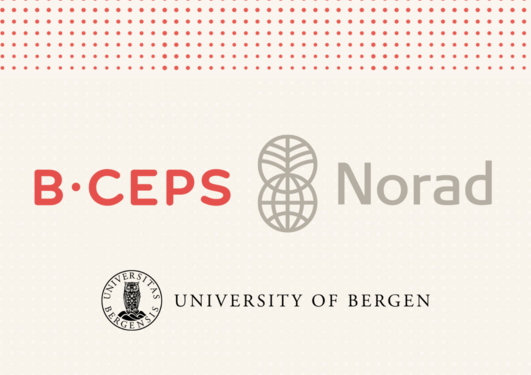Memorandum of Understanding between BCEPS (UiB) and Africa CDC
The agreement will strengthen ongoing work to improve public health in African Union (AU) member states and give more people access to basic health services.

Main content
Bergen Centre for Ethics and Priority Setting (BCEPS) at the Department of Global Public Health and Primary Care is an interdisciplinary research centre that focuses on ethically fair and efficient priority setting in national health systems.
The four-year collaboration agreement has been entered into by BCEPS (UiB) and Africa Centres for Disease Control and Prevention (Africa CDC). It will provide the foundation for formal participation in a new Norad-funded project on ‘Defining and integrating NCD interventions in national health systems’.
– We are proud that this important institution wants to collaborate with us and we promise to work hard to support Africa CDC further to fulfil its role as a provider of better health care in the African Union, says BCEPS Director Ole Frithjof Norheim.
Will strengthen public health capacity
Africa CDC works on public health initiatives in the African Union, aiming to strengthen the capacity of Africa’s public health institutions to handle both infectious diseases and chronic illnesses. The Memorandum of Understanding with BCEPS has been entered into by Africa CDC’s newly established unit for health economics.
BCEPS also collaborates with Brigham and Women's Hospital (BWH) at Harvard Medical School in the US, where the Center for Integration Science in Global Health Delivery has cutting-edge expertise in implementing priority services.
In addition to the agreement with Africa CDC, BCEPS aims to extend its support to public health work in Tanzania, Ghana, and Nepal. The will build on existing collaboration with Addis Centre for Ethics and Priority Setting (ACEPS) on the prioritisation of health measures in Ethiopia, Zanzibar and Malawi.
– In recent years, the disease burden of cancer, mental health and cardiovascular disease has increased, but these issues have not been prioritised in many African countries. When building up universal health care systems, it is necessary to prioritise among the most important measures for prevention and treatment of chronic illnesses and to ensure that everyone has equal access to quality health services, says Norheim.
– This collaboration is important to the Africa CDC Health Economics Programme (HEP) in many ways, including supporting with capacity while also helping to close some of the evidence-policy gaps for the Member States, says Acting Head of the Africa CDC Health Economics Programme, Prof Justice Nonvignon.
Click on the link below to read an interview with Justice Nonvingon in McGill Global Health Perspectives.
Justice Nonvignon: Head of Africa CDC’s Health Economics Unit speaks on ways forward for decolonizing global health
Important competence
BCEPS is one of three research units at the UiB Faculty of Medicine (and seven at UiB) to reach the final round of evaluation to become a Norwegian Centre of Excellence (SFF). The ultimate aim of gaining SFF status is to be able to conduct more basic research in ethics and fair prioritisation of health. The agreement with Africa CDC shows how important this competence is.
– Being able to collaborate with the best organisations is of huge value for our research, comments Norheim.
New research positions based on the Africa CDC agreement
In connection with the new agreement, one researcher and one PhD candidate will be recruited to work directly with Africa CDC.
– We will recruit researchers who will work to develop health policy in the African Union. This builds on BCEPS’ previous contributions to strengthen relevant competence in the Ethiopian Ministry of Health. The goal is for researchers to increase their expertise in health economics and priority setting, and for this in turn to strengthen health systems and benefit patients, Norheim concludes.


